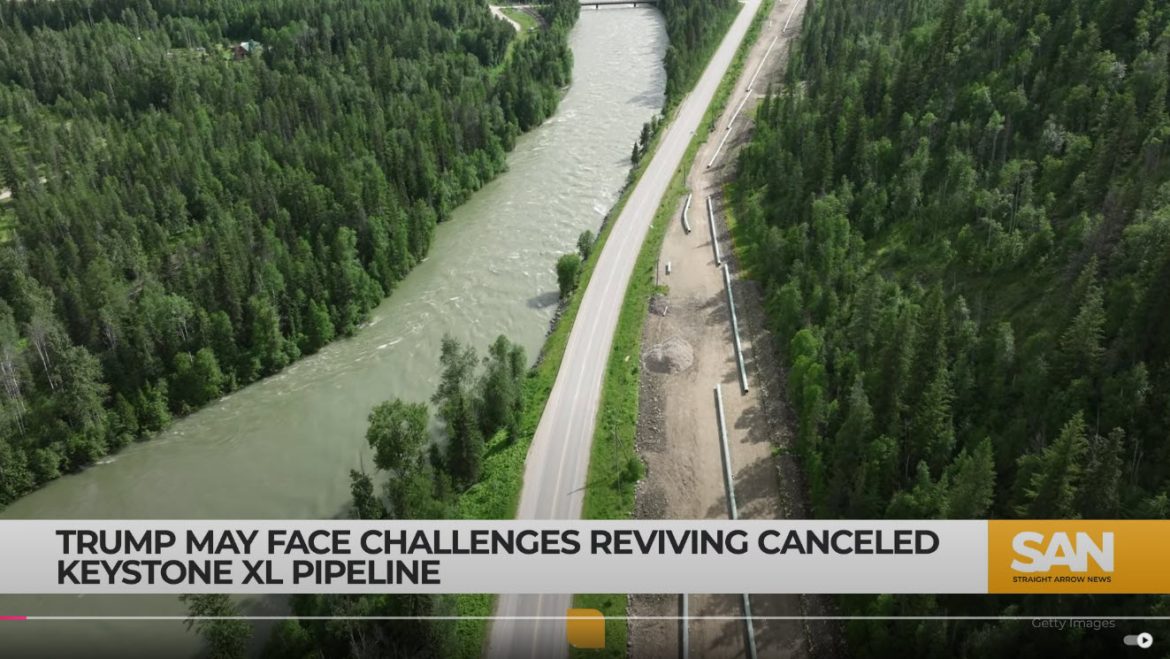President-elect Donald Trump pledges to reinstate the controversial Keystone XL pipeline project as one of his first acts in office, reigniting a heated debate over energy policy and environmental protection. Trump’s announcement signals his administration’s focus on prioritizing energy independence, job creation, and the expansion of fossil fuel infrastructure, a stark departure from the Biden administration’s emphasis on renewable energy and climate action.
The Keystone XL pipeline, initially proposed in 2008, was designed to transport more than 800,000 barrels of crude oil daily from Canada’s oil sands in Alberta to refineries along the Texas Gulf Coast. The project has been mired in controversy, with previous administrations grappling over its environmental impact and its potential to undermine U.S. commitments to reducing carbon emissions. President Joe Biden canceled the pipeline’s permit in 2021, a move celebrated by environmentalists but decried by energy advocates and industry workers.
Speaking at a recent rally, Trump doubles down on his commitment to bring back the pipeline, emphasizing its potential to bolster U.S. energy production and create jobs. “On my very first day in office, I will restore the Keystone XL pipeline and put America back on the path to energy dominance,” Trump declares, drawing applause from supporters and industry advocates.
For former pipeliner Ray Hawkins, Trump’s promise is a beacon of hope. “I’m on cloud nine,” Hawkins shares in a recent interview, expressing optimism that Trump’s energy policies will reinvigorate the industry and provide economic stability for thousands of workers affected by the pipeline’s cancellation. Hawkins and others argue that the Keystone XL pipeline represents not just an energy project but a lifeline for American jobs and energy security.
Critics, however, warn that reviving the pipeline could have severe environmental consequences. Environmental groups cite concerns about potential oil spills, increased greenhouse gas emissions, and the disruption of ecosystems and indigenous lands. Indigenous leaders, who have been at the forefront of protests against the pipeline, vow to resist any attempts to restart construction, emphasizing the need to protect their ancestral lands and water sources.
The Canadian company behind the Keystone XL project, TC Energy, has not yet indicated whether it is willing to reengage in the project. Analysts note that global energy markets and policies have shifted since the pipeline was first proposed, raising questions about its long-term viability and financial feasibility.
Trump’s announcement also highlights the broader ideological divide on energy policy. While his supporters view the pipeline as a symbol of economic growth and energy independence, opponents see it as a step backward in the fight against climate change. Environmentalists argue that the U.S. should focus on renewable energy investments rather than doubling down on fossil fuel infrastructure.
As the debate over Keystone XL reignites, the project’s fate will likely depend on political will, public support, and evolving market conditions. For now, Trump’s declaration has reignited the contentious debate over energy policy, job creation, and environmental protection, setting the stage for yet another battle in America’s ongoing energy wars.



